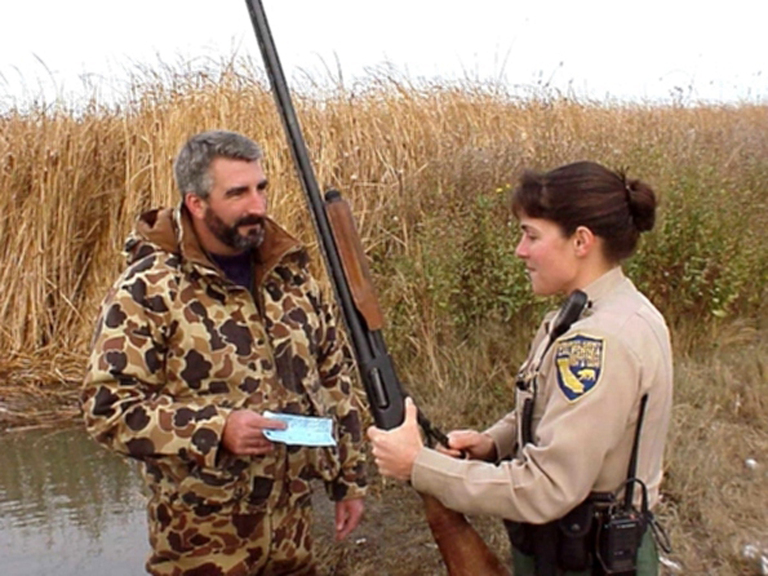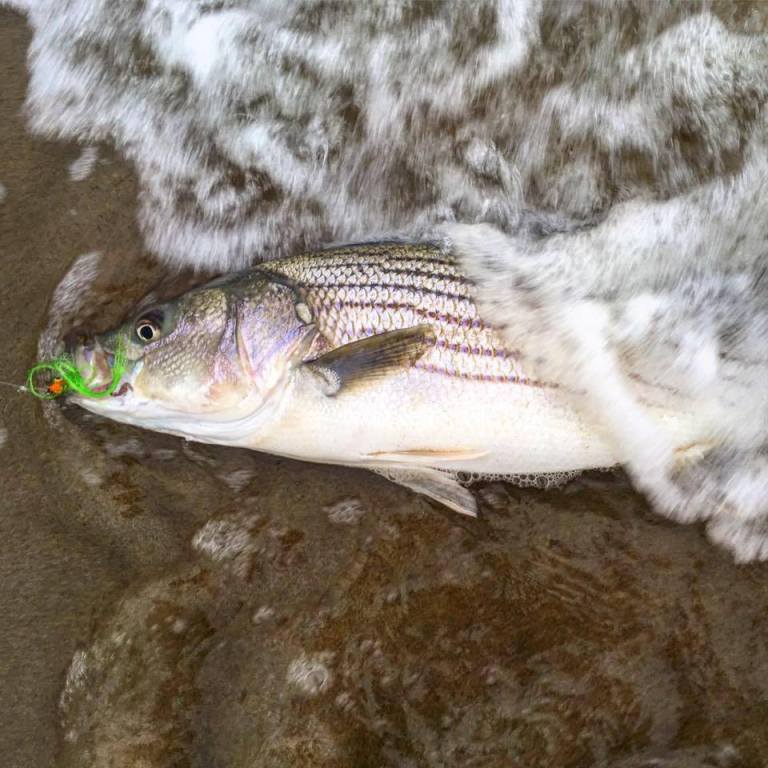Compliance Requirements with Game Wardens?

by Carrie Wilson
8-3-2017
Website
Question: What are the penalties for refusing to cooperate with and speak to a California Department of Fish and Wildlife (CDFW) game warden or to show I.D. upon request? (P.T.)
Answer: You are required to show your hunting or fishing license, tags and/or harvest report cards, proof of identification and any fish or game in your possession upon request. “All licenses, tags, and the birds, mammals, fish, reptiles, or amphibians taken or otherwise dealt with under this code, and any device or apparatus designed to be, and capable of being used to take birds, mammals, fish, reptiles, or amphibians shall be exhibited upon demand to any person authorized by the department to enforce this code or any law relating to the protection and conservation of birds, mammals, fish, reptiles, or amphibians” (Fish and Game Code, section 2012). Noncompliance with this regulation is punishable as a misdemeanor.
Are spiny dogfish considered sharks under the sharkfin ban?
Question: I know you can no longer buy shark fin soup at a restaurant. How about spiny dogfish fin soup? Are spiny dogfish included in this ban? (Anonymous)
Answer: Although the name may be confusing, dogfish are actually sharks in the elasmobranch subclass and are covered by Fish and Game Code, section 2021, which prohibits commercial trade of shark fins and products made thereof. A restaurant cannot lawfully sell shark fin soup made from the fins of a dogfish. As used in this section, “shark fin” means the raw, dried, or otherwise processed detached fin or the raw, dried, or otherwise processed detached tail, of an elasmobranch.
Bait balls for chumming?
Question: I have seen a product called Bait Balls advertised from a store where I routinely buy my fishing supplies. Would the use of this product in inland waters be considered chumming? (Nina)
Answer: “Chumming” is the practice of “placing any material in the water, other than on a hook while angling, for the purpose of attracting fish to a particular area in order that they may be taken” (California Code of Regulations Title 14, section 1.32). If this product will be broadcast independently and not used as bait on a hook, then using it would be considered chumming. Chumming is allowed while fishing in saltwater, but it is prohibited in most inland waters.
When fishing in inland waters (as per CCR Title 14, section 2.40), “Chumming is permitted only in:
(a) The Colorado River District, but only the approved bait fishes for this District may be used as chum (see Section 4.15) except in the Salton Sea where corn may also be used.
(b) Carquinez Strait and Suisun Bay and their tributaries and saltwater tributaries.
(c) Sacramento River and tidewater of tributaries downstream from Interstate 80 bridge.
(d) San Joaquin River and tidewater of tributaries downstream from Interstate 5 bridge.”
Fully feathered dove wings required in a permanent camp?
Question: I have a dove possession question that my buddy and I argue about. After a day of hunting doves when we come back to camp, must we leave the wing on if we are spending a week at camp and are going to eat some of the doves that week? I know we must leave the wings on while transporting, but once we are in a permanent camp can the wings be removed? By leaving the wing on, after a couple days the birds develop a foul taste (no pun intended!). To me, they stink, even in the cooler. Last year a game warden came into camp and I forgot to ask him about it. My buddy said, “See, we were lucky!” But were we really? (Jim M.)
Answer: Your doves must retain a fully feathered wing either until you return to your home or until the bird(s) are being prepared for immediate consumption. “All birds, including migratory game birds, possessed or transported within California must have a fully feathered wing or head attached until placed into a personal abode or commercial preservation facility, or when being prepared for immediate consumption” (CCR Title 14, section 251.7). Camps are NOT considered to be your permanent or personal abode.
Carrie Wilson is a marine environmental scientist with the California Department of Fish and Wildlife. While she cannot personally answer everyone’s questions, she will select a few to answer each week in this column. Please contact her at CalOutdoors@wildlife.ca.gov.

